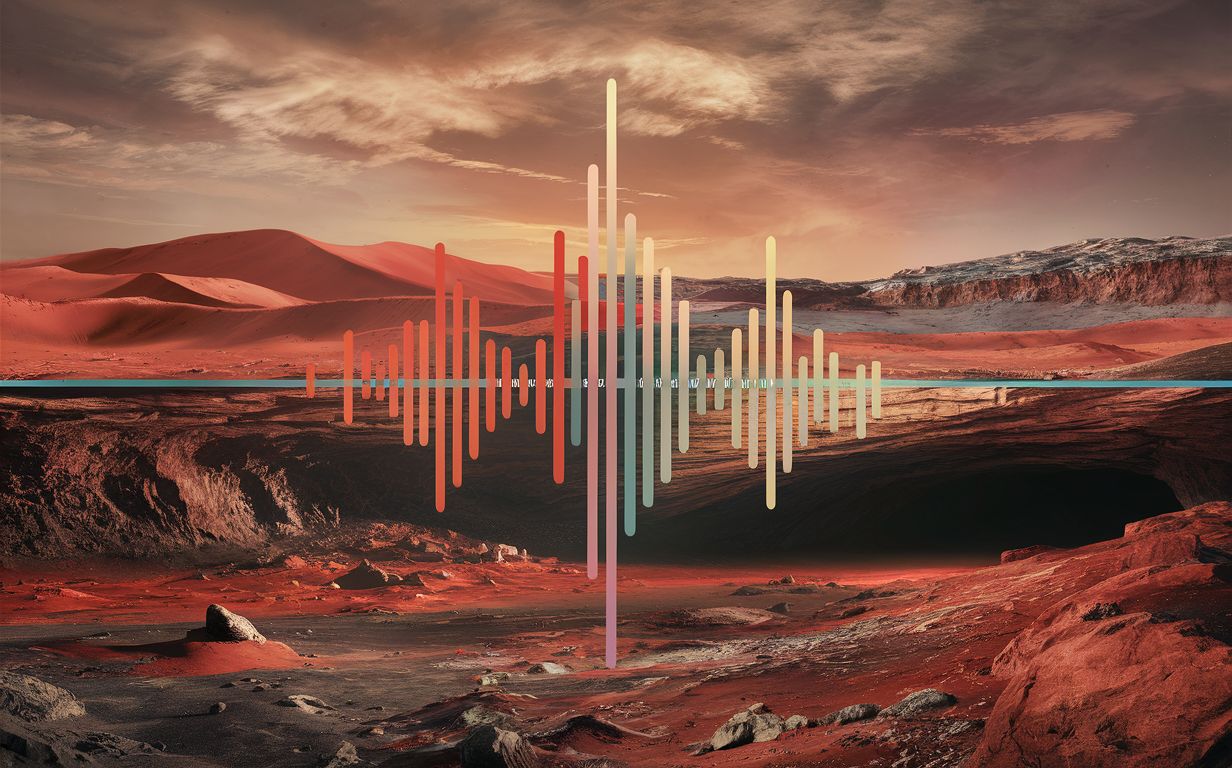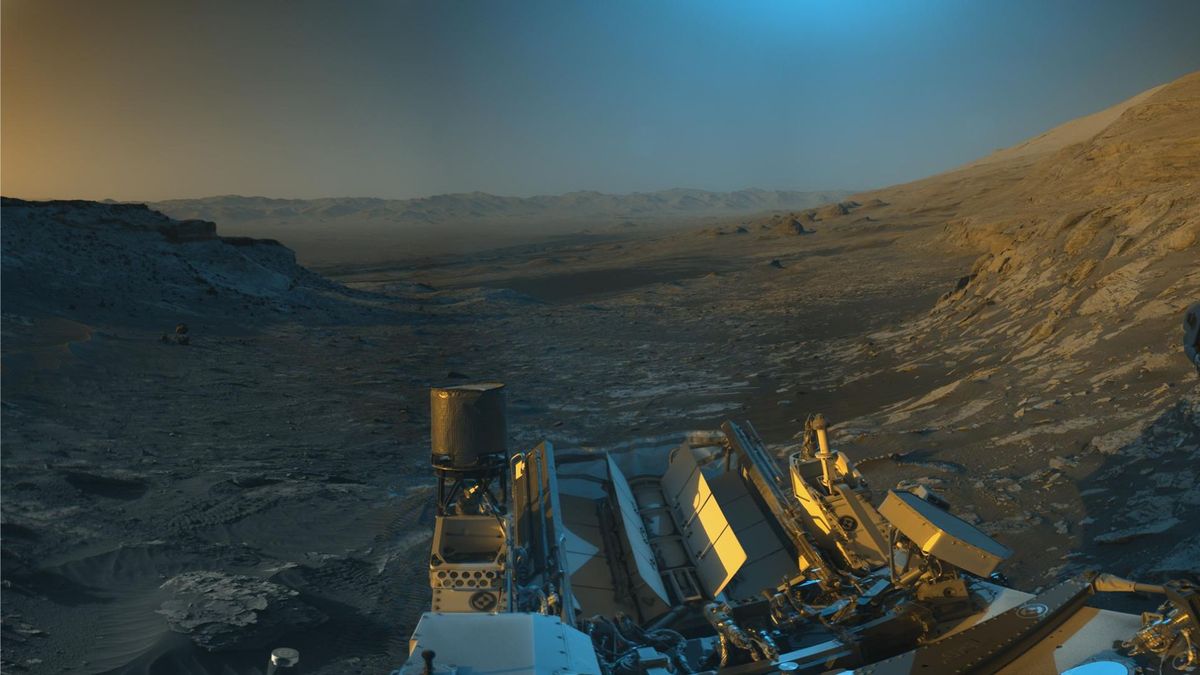The behavior of sound on Mars: strange and unusual
Follow us on Google News (click on ☆)
NASA's Perseverance rover, equipped with several microphones, has captured sounds on Mars, including the whisper of dust devils. These recordings revealed a notable peculiarity: sounds below 240 hertz travel more slowly than higher-pitched sounds due to the atmosphere rich in carbon dioxide.

Researchers have undertaken the study of the speed and attenuation of sound within the first 65 feet (20 meters) of the Martian atmosphere. By analyzing data from the Mars Climate Database, they were able to predict sound variation according to atmospheric pressure, temperature, and chemical composition.
The study showed that the speed of sound and its attenuation vary greatly on Mars depending on the altitude and time of day. For example, in the polar regions, temperatures can fluctuate by 108 degrees Fahrenheit (60 degrees Celsius), significantly affecting sound propagation.
The results, published in JGR: Planets, also revealed that dust does not affect sound propagation, contrary to what one might think. The speed of sound increases with temperature, similar to what happens on Earth, but carbon dioxide plays a major role in these variations on Mars.
The daily temperature fluctuations, particularly pronounced in the areas explored by Perseverance, influence sound propagation. During warm hours, sounds travel faster and attenuate more quickly, contrasting with colder hours.

A composite panorama of Mars taken by NASA's Curiosity rover at two different times of day: 8:30 AM and 4:10 PM local Martian time. New research shows that sound travels differently depending on the time of day on Mars, as well as at different times of the year and at different locations.
Credit: ASA/JPL-Caltech
This acoustic modeling allows for predicting the speed and attenuation of sound on Mars at any location and time. For future Martian settlers, this means that mornings on mountain peaks could offer a sound experience similar to that on Earth, while afternoons might produce confusing sound effects.